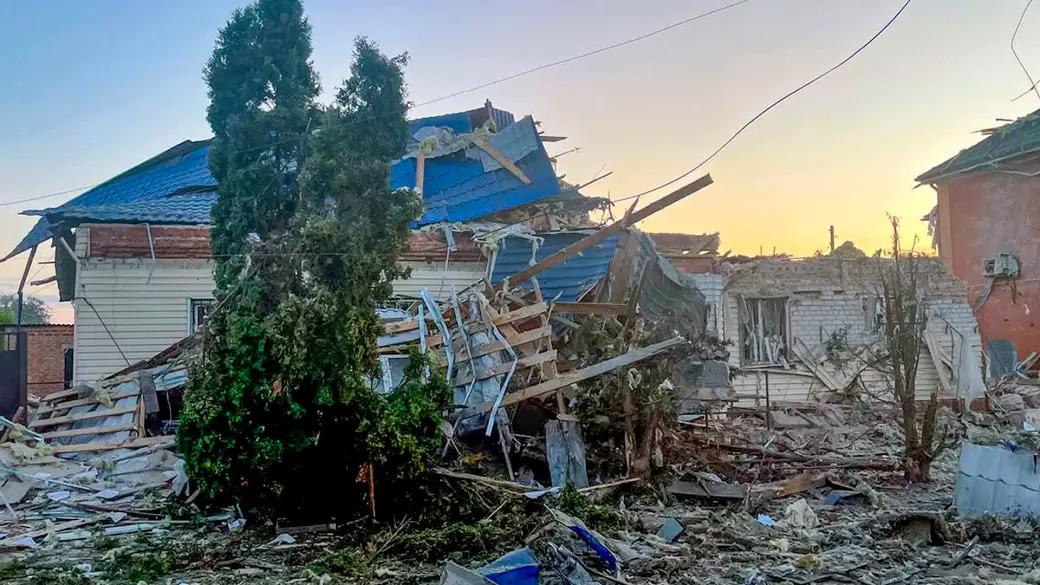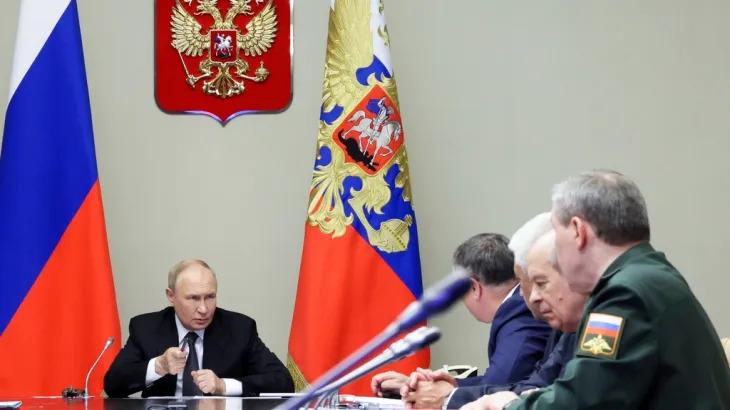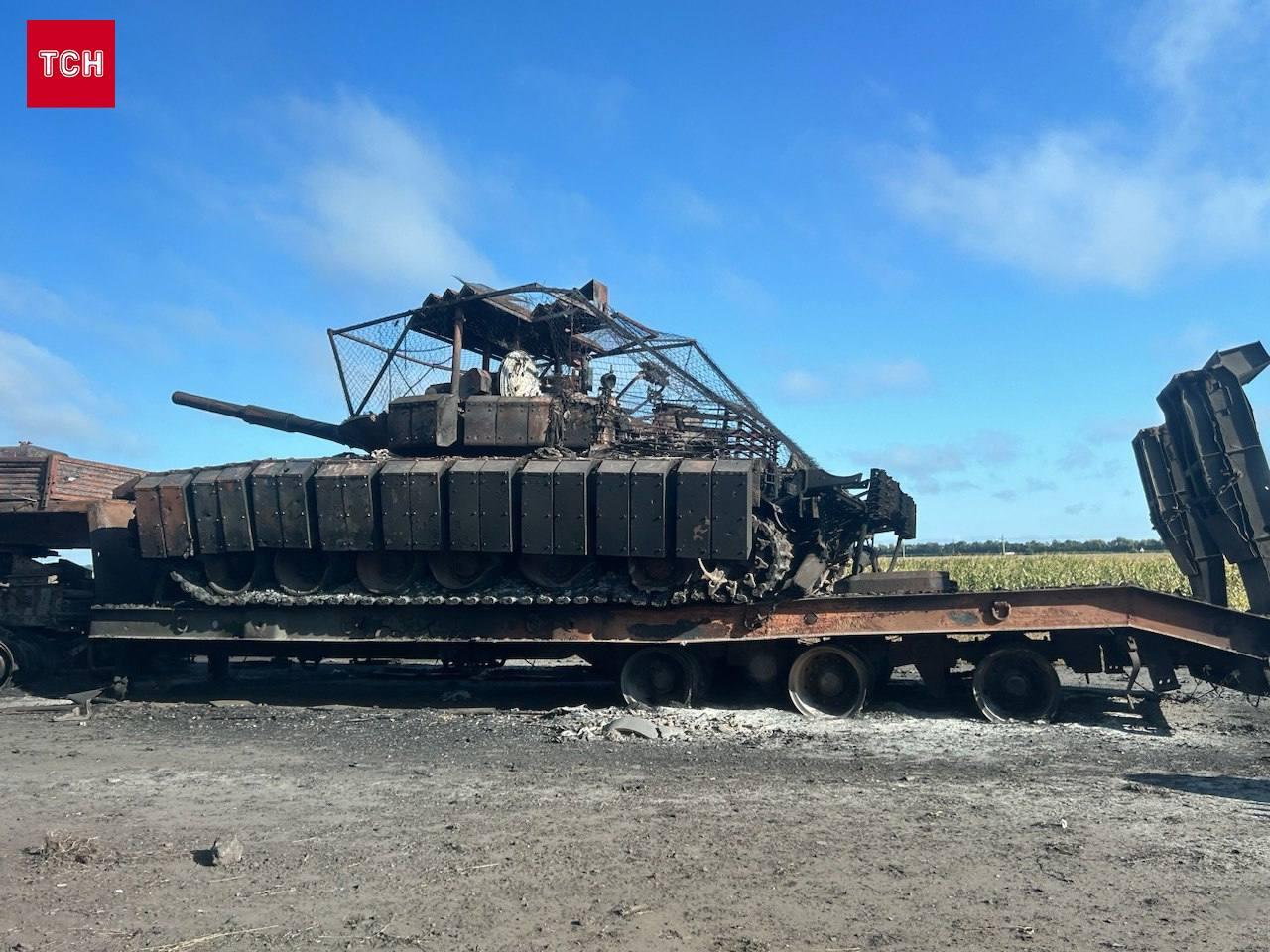Ukraine’s bold incursion shifts battlefield dynamics, alters peace talks Kyiv’s strategy redefines the conflict’s future
Ukraine's rapid incursion into Russia's Kursk Region has shifted battlefield dynamics, showcasing Kyiv's tactical agility and challenging Moscow's narrative of control. This move could potentially alter peace negotiations by demonstrating Ukraine’s ability to strike deeply into Russian territory, thereby exerting pressure on Moscow despite President Putin's dismissive stance. The incursion has strengthened relations with the West by highlighting Ukraine's resilience and strategic capabilities, though it may also risk increased Russian counteractions and strain resources.
Q: What is the current state of affairs following Ukraine's incursion into Russian territory?
A: Ukraine's recent incursion into Russia's Kursk region has marked a significant escalation in the conflict. Ukrainian forces, led by Commander-in-Chief Gen Oleksandr Syrskyy, have reportedly seized control of approximately 1,000 square km of Russian territory. This operation has caught many by surprise, including Russian authorities, and has led to the displacement of tens of thousands of residents in Kursk Region. While Ukraine's control over this territory remains tenuous, the operation has undeniably shifted the momentum, placing Ukraine in a more assertive position on the battlefield.

Q: What are the strategic options available to Ukraine following this bold move?
A: Ukraine faces three primary strategic options moving forward:
Digging in & holding territory: Ukraine could attempt to hold the seized territory, forcing Russia to divert resources from other fronts, such as Donbas. This could give Ukraine a tactical advantage, as it would stretch Russian supply lines and military resources. However, this approach is risky. Holding territory deep inside Russia would require significant resources, and Ukraine's forces could become vulnerable to Russian counter-attacks, particularly if they are unable to maintain strong air defense and electronic warfare coverage.
Pulling back in good order: Ukraine could withdraw from the seized territory while preserving its troops and equipment. This strategy would allow Ukraine to claim a symbolic victory, demonstrating its ability to strike deep into Russian territory, without overextending its forces. A well-executed withdrawal could also boost morale and maintain the narrative of Ukrainian resilience while keeping resources focused on reclaiming occupied Ukrainian lands.
Partial withdrawal to a defensible position: A middle-ground approach would involve withdrawing to a more defensible position closer to the Ukrainian border. This would reduce the strain on Ukraine's logistics and allow it to maintain a presence in Russian territory as a potential bargaining chip in future negotiations. This option also enables Ukraine to conduct further operations if opportunities arise, while minimizing the risk of overextension.
Q: How might this incursion impact potential peace talks between Kyiv and Moscow?
A: The incursion could significantly influence the dynamics of any future peace talks. By demonstrating its capability to conduct offensive operations deep within Russian territory, Ukraine may force Moscow to re-evaluate its position. This show of strength could provide Kyiv with greater leverage in negotiations, compelling Russia to consider more serious compromises to avoid further incursions. However, the success of this strategy hinges on Ukraine's ability to maintain its gains and avoid heavy losses, which could otherwise embolden Russia to adopt a more aggressive stance in both military and diplomatic arenas.
Q: What are the potential repercussions for Ukraine’s relations with the West following this operation?
A: The reaction from Ukraine's Western allies is likely to be mixed:
Supportive reactions: Some Western nations may view Ukraine's incursion as a justified and necessary response to continued Russian aggression. This could lead to increased military and financial support, as Ukraine has demonstrated its capability and resolve to push back against Russia. The operation may also reassure Ukraine's allies that their support is yielding tangible results.

Concerns about escalation: Conversely, other Western countries might express concern over the escalation of the conflict and the potential for it to spiral into a broader regional or even global war. These concerns could prompt calls for restraint and renewed diplomatic efforts, potentially putting pressure on Kyiv to de-escalate and engage in negotiations with Moscow.
Q: Are there any unforeseen consequences that Ukraine might face as a result of this incursion?
A: The incursion into Russian territory could lead to several unforeseen consequences:
While the operation may initially rally Russian citizens around the government, sustained military engagements on Russian soil could eventually lead to growing public discontent. This could weaken domestic support for the war and potentially destabilize Putin's regime.
The operation could also strain Ukraine's military resources, especially if it leads to prolonged engagements. Ukraine must balance the need to maintain momentum in this operation with the necessity of defending its own territory, particularly in regions like Donbas and Kharkiv, where Russian forces remain active.
The international community's reaction to the incursion could also have unforeseen implications. While some countries may increase their support for Ukraine, others, particularly those with concerns about the conflict's escalation, may push for a more cautious approach. This could affect Ukraine's diplomatic standing and its ability to secure the level of support needed to sustain its military efforts.
Q: What are the long-term implications of Ukraine’s incursion for the broader conflict and future negotiations?
A: The long-term implications of Ukraine’s incursion are still unfolding, but several key factors will likely shape the future of the conflict:
If Ukraine can maintain pressure on Russian forces within its own territory, it may force Russia to rethink its military strategy. This could lead to a redistribution of Russian forces, potentially weakening their positions in critical areas like Donbas.

The incursion could alter the negotiation dynamics between Kyiv and Moscow. Ukraine’s demonstrated ability to strike within Russia could serve as a powerful bargaining chip in any future peace talks, giving Kyiv leverage to demand more favorable terms.
The operation’s success or failure could have broader implications for regional and global security. A successful Ukrainian operation may encourage other nations to support more aggressive actions against Russian interests, while a failure could lead to calls for de-escalation and a more cautious approach to the conflict.
In summary, Ukraine’s incursion into Russian territory marks a significant and potentially game-changing moment in the conflict. The coming weeks will be crucial in determining whether this bold move can be translated into lasting strategic advantage, or if it will lead to further escalation and complexity in an already fraught conflict.








